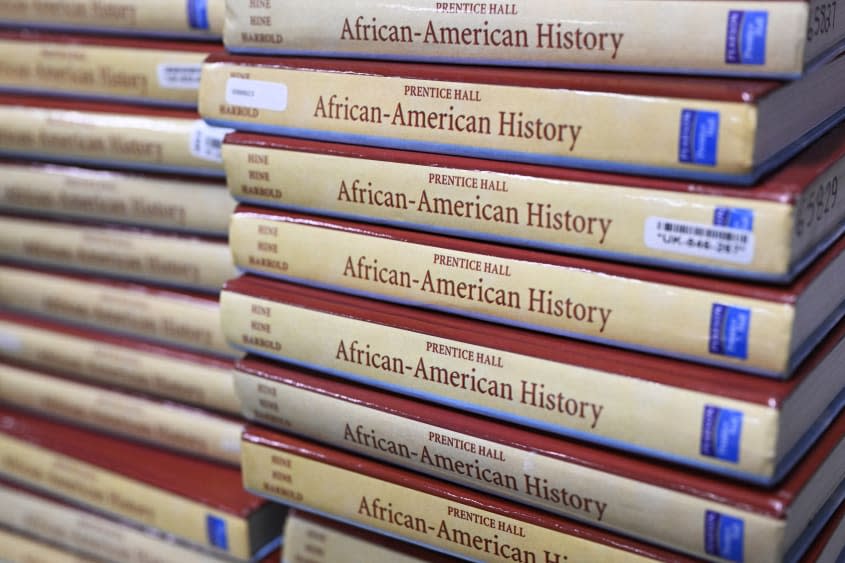College Board appeases conservative furor over AP African American studies curriculum

On Wednesday, the body tasked with overseeing the nation's Advanced Placement curriculum published its finalized educational framework for its new African American studies program, initially outlined in August. In a press release trumpeting the more than 200-page document, the College Board — which also runs educational programs such as the Scholastic Aptitude Test — heralded the course as an "unflinching encounter with the facts and evidence of African American history and culture" while acknowledging that the curriculum differed from the initial framework offered at the start of the school year with an "an overall reduction in the breadth of the course."
Among the material reportedly excised from the new framework are modules on contemporary topics like the Black Lives Matter movement, Black/queer movements, and works of notable authors like Ta-Nehisi Coates, and Columbia University law professor Kimberle W. Crenshaw. Rather than occupying a compulsory role in the curriculum and ultimate exam, much of the material in question has instead been diminished into optional research project topics, alongside an added option of "black conservatism." These "reductions," while given little overall attention in the College Board's announcement itself, have raised red flags among some educators and scholars who worry the new curriculum is a capitulation to a broader effort by Republican lawmakers to block schools from teaching topics that don't comport with their political ideology.
"This response by the College Board, caving to bad-faith attacks by conservatives and letting them determine the proper way to examine the Black experience will only encourage more of this," historian and journalist Nikole Hannah-Jones wrote of the new framework. Hannah-Jones' Pulitzer-winning 1619 Project examining the role race and racism has played in the development of the country has been specifically targeted by Republican lawmakers like Florida Gov. Ron DeSantis and former President Donald Trump and bashed as "toxic propaganda" and "ideological poison."
"[The AP course] is a corrective, it is an intervention, it is an expansion," Crenshaw, a pioneer of the legal "Critical Race Theory" that has become conservative shorthand for racial studies at large, told The New York Times. "For it to be true to the mission of telling the true history, it cannot exclude intersectionality, it cannot exclude critical thinking about race."
DeSantis in particular has been at the forefront of the Republican attack on the AP coursework, and its broader implications for how race and history are taught in the United States. Just weeks before the College Board's rollout of the revised curriculum, Florida's Department of Education rejected the AP African American studies course, writing that it was "inexplicably contrary to Florida law and significantly lacks educational value." And on Tuesday, at an event debuting his plans to significantly overhaul Florida's educational system, DeSantis seemingly compared the AP course with "Zombie studies," which he claimed wasn't "grounded in actual history, the actual philosophy that has shaped Western Civilization."
That same day, a group of African American studies educators published an open letter defending the AP's original coursework. The faculty described DeSantis' efforts to block and subvert the course as racist, and part of a "broader effort to degrade, erase, and rewrite our history" which, if successful "would mean that the worst dystopias of science fiction have taken root, their encroachments on the classroom forcing us further down the path to an extraordinarily dangerous future."
You may also like
The Hogwarts Legacy boycott controversy, explained
Linda Ronstadt is already the Kate Bush of 2023 thanks to The Last of Us

 Yahoo Movies
Yahoo Movies 